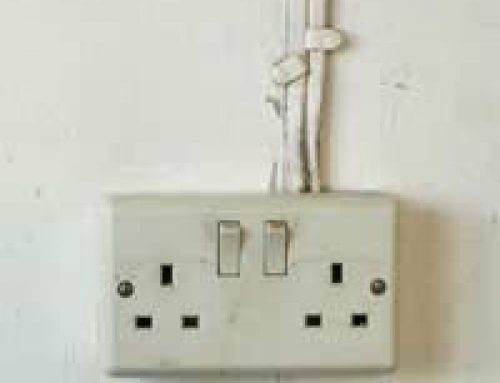 It’s a common complaint among householders – finding a reputable tradesman is next to impossible. The route to finding a good reputable tradesman is not as difficult as you might imagine, if you follow these basic rules you will get the job done properly, at the right price.
It’s a common complaint among householders – finding a reputable tradesman is next to impossible. The route to finding a good reputable tradesman is not as difficult as you might imagine, if you follow these basic rules you will get the job done properly, at the right price.
Recommendation
Word of mouth is the best advertising any tradesman can have. Ask around among family, friends, and work colleagues for the name of someone they have used in the past, or they know to be a good honest worker.
References
If you are using a tradesman whom you don’t know by reputation, don’t be afraid to ask for contact details for his last customers for whom he has done similar work. Contact them, and have a chat about how well the job was done, the price quoted, and the time taken.
Established Businesses
Make sure your tradesman is working from proper premises, even if it is an office in his home. He should be able to quote a VAT Registration Number and offer you a landline as well as a mobile telephone number, and correspondence on headed notepaper.
Trade Associations
Most professional tradesmen belong to an appropriate Trade Association that vets its members to ensure that they are working correctly and charging reasonable rates. If your tradesman advises he has membership, check his membership by ringing the Association yourself.
Once you have selected the tradesman to do the job, you need to ensure that everyone knows what the job involves, and what it will cost. Follow this check plan to make sure you don’t run into trouble.
- Make sure your tradesman knows exactly what you want him to do. Don’t be vague, or ask him what he thinks, unless it is to back up your own proposals, which you have planned in advance.
- Get a written estimate in advance. This should include a breakdown of costs for materials and labour, and VAT. It should also advise a reasonable time-scale, and be provided on headed notepaper, signed and dated, with a copy for each of you to keep. Always get at least two estimates before you appoint your tradesman.
- Agree any ‘stage’ payments in advance. This means paying part of the completed fee as the job progresses in order to allow for the purchase of materials. It is standard practice, but work out what the payments are for, when they will be made, and do not deviate from them.
- Request an insurance-backed warranty for completed work in advance, especially if the job is a major building project.
- Do not change your mind part way through the job – it voids the agreement you have signed and will cause bad feeling, and may leave your tradesman deciding to cut his losses and walk away before finishing the job.
If Things Go Wrong
If you have chosen your tradesman carefully, and worked out the requirements for the job, and obtained duplicates of the schedule, including stage payments, then all should proceed smoothly, but things can still go wrong, and you should be prepared.
- Do not pay cash unless you obtain a VAT receipt for the items bought. You have no way of checking if the money is being spent on your work.
- Do not agree to work sold to you on the doorstep, or by ‘sales people in your area’. Any reputable individual or firm does not need to go begging for work, they are usually turning away more than they can handle.
- Do not make payments in advance of completion, this is inviting an unscrupulous tradesman to simply walk away and find another job before yours is completed. Stick to your agreement.
- If you have issues about anything connected to the job, speak to the boss, or foreman and politely but firmly point out your concerns. If they are not rectified, put them in writing, posted to the office, and keep a copy and proof of postage. You will need these should any legal action arise from unsolved disputes.
- If you have serious concerns about the conduct of the tradesman, or the work being done, advise him to stop immediately, and advise that you are going to make a payment based on the work completed, and that the contact will then be terminated in writing.
A lot of ‘rip off’ situations can be easily avoided by making sure everyone knows what is expected in advance. If you stick to the rules, you will have a good job done, and be confident you can invite your tradesman to quote for future work, and recommend him to friends and family.





Leave A Comment